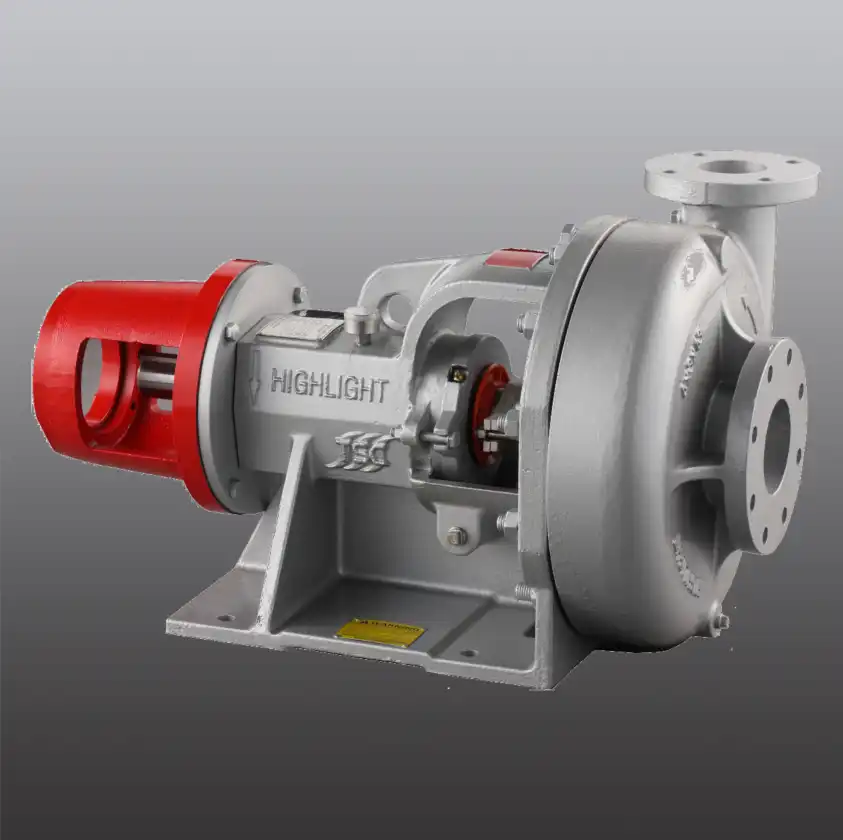Saltwater Resistance: Selecting Appropriate Materials
The corrosive nature of saltwater poses a significant challenge for offshore equipment, particularly centrifugal pumps. Selecting materials that can withstand this harsh environment is crucial for ensuring the longevity and reliability of these critical components.
Corrosion-Resistant Alloys
Stainless steel alloys, such as duplex and super duplex grades, offer excellent resistance to saltwater corrosion. These materials combine strength with durability, making them ideal for offshore applications. Nickel-based alloys, like Inconel and Monel, provide superior corrosion resistance in extremely aggressive environments, though at a higher cost.
Protective Coatings
Advanced protective coatings can enhance the corrosion resistance of centrifugal pump components. Epoxy-based coatings and ceramic composites create a barrier against saltwater, extending the life of the pump and reducing maintenance frequency. These coatings must be carefully selected and applied to ensure optimal performance in offshore conditions.
Sacrificial Anodes
Implementing sacrificial anodes as part of a cathodic protection system can significantly reduce corrosion rates in centrifugal pumps. These anodes, typically made of zinc or aluminum, corrode preferentially, protecting the pump's critical components from degradation. Regular inspection and replacement of sacrificial anodes are essential for maintaining effective protection.
Space Constraints: Compact Design Solutions
Offshore platforms often face significant space limitations, necessitating innovative design solutions for equipment like centrifugal pumps. Compact designs that maintain performance and reliability are essential for maximizing available space and optimizing offshore operations.
Modular Configurations
Modular pump designs offer flexibility in installation and maintenance within confined spaces. These configurations allow for easier assembly, disassembly, and component replacement, reducing downtime and simplifying logistics. CM Energy's HCP-S type Centrifugal Pumps exemplify this approach, featuring a compact design that's well-suited for space-constrained offshore applications.
Vertical Pump Arrangements
Vertical centrifugal pump configurations can significantly reduce the footprint compared to horizontal layouts. This orientation is particularly beneficial in tight spaces, allowing for efficient use of vertical space while maintaining performance characteristics. Vertical pumps also offer advantages in terms of reduced vibration and improved suction performance in certain applications.
Integrated Systems
Integrating centrifugal pumps with other components, such as motors, controls, and monitoring systems, into a single package can further optimize space utilization. These integrated solutions not only save space but also simplify installation and maintenance processes. TSC's approach to unitized pump packages demonstrates the benefits of this integrated design philosophy.
Regulatory Compliance for Offshore Equipment
Adhering to regulatory standards is paramount when selecting centrifugal pumps for offshore platforms. Compliance ensures safety, environmental protection, and operational efficiency in the challenging offshore environment.
International Maritime Organization (IMO) Standards
Centrifugal pumps used on offshore platforms must meet IMO regulations, particularly concerning fire safety and pollution prevention. These standards dictate specifications for materials, performance, and safety features. Ensuring compliance with IMO standards is crucial for global operations and maintaining certification for offshore installations.
ATEX Certification
For operations in potentially explosive atmospheres, ATEX certification is essential. Centrifugal pumps must be designed and manufactured to prevent ignition sources, ensuring safe operation in hazardous offshore environments. This certification covers electrical and mechanical aspects of the equipment, requiring thorough testing and documentation.
API Standards
The American Petroleum Institute (API) sets comprehensive standards for centrifugal pumps used in oil and gas industries, including offshore applications. API 610, for example, outlines specifications for centrifugal pumps in petroleum, petrochemical, and natural gas industries. Compliance with these standards ensures reliability, interchangeability, and safety in demanding offshore conditions.
Environmental Regulations
Increasingly stringent environmental regulations impact the selection of centrifugal pumps for offshore use. Considerations include energy efficiency, emissions reduction, and proper handling of potentially harmful fluids. Pumps must be designed to minimize environmental impact while maintaining operational efficiency.
Selecting the right centrifugal pump for offshore platforms requires a comprehensive approach that balances performance, durability, and compliance. By carefully considering factors such as saltwater resistance, space constraints, and regulatory requirements, operators can ensure their pumping systems meet the unique challenges of the offshore environment. The HCP-S type Centrifugal Pumps offered by CM Energy exemplify the innovation required to address these complex needs, providing compact, efficient, and durable solutions for offshore applications.
As the offshore industry continues to evolve, the importance of choosing the right equipment becomes ever more critical. Advances in materials science, design techniques, and manufacturing processes are continually improving the capabilities of centrifugal pumps, offering new opportunities for enhanced performance and reliability in offshore operations.
For offshore platform operators, geothermal well managers, and those involved in environmental remediation drilling, making informed decisions about centrifugal pump selection is crucial for long-term success. By partnering with experienced manufacturers and leveraging the latest technological advancements, it's possible to overcome the challenges posed by harsh marine environments and stringent regulatory requirements.
TSC stands at the forefront of centrifugal pump technology for offshore applications. Our commitment to innovation, quality, and customer support ensures that we deliver solutions tailored to the unique needs of each offshore project. Whether you're upgrading existing infrastructure or planning new installations, our team of experts is ready to assist you in selecting the ideal centrifugal pump for your offshore platform.
Ready to enhance your offshore operations with state-of-the-art centrifugal pump solutions? Contact CM Energy today at info.cn@cm-energy.com to discuss your specific requirements and discover how our expertise can drive your success in the challenging offshore environment.
References
- American Petroleum Institute. (2021). "API Standard 610: Centrifugal Pumps for Petroleum, Petrochemical and Natural Gas Industries."
- International Maritime Organization. (2022). "MARPOL Annex I - Prevention of Pollution by Oil."
- Offshore Technology. (2023). "Advancements in Centrifugal Pump Design for Offshore Applications."
- Journal of Offshore Engineering and Technology. (2024). "Material Selection for Saltwater Resistance in Offshore Equipment."
- Marine Technology Society Journal. (2023). "Space Optimization Strategies for Offshore Platform Equipment."
- Offshore Engineers Handbook. (2024). "Regulatory Compliance in Offshore Equipment Selection and Operation."

